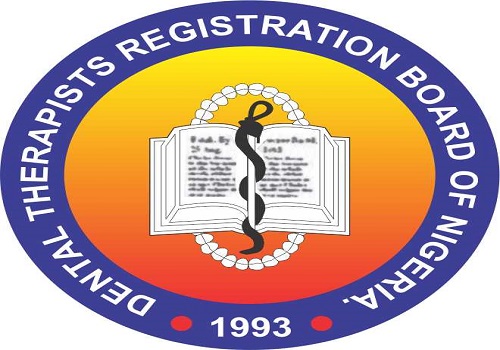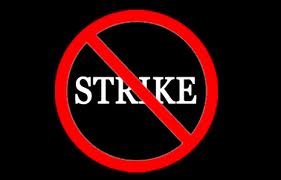Dr. Steve Onya is the Chief Executive Officer (CEO) and Managing Director of Chi Pharmaceuticals Limited and member Pharmaceutical Manufacturers Group of the Manufacturers Association of Nigeria (PMG-MAN). Onya in this interview with The Guardian said new policies introduced by the federal government including the National Drug Distribution Guidelines (NDDG) and Common External Tariff (CET) are killing local drug production and, if implemented, they will among other things lead to loss of over 300,000 jobs and dearth of research and development of new products. Onya, a pharmacist, is also a public health consultant to the United States Agency for International Development (USAID) malaria projects and the President of African Health Solution, with Headquarter in California, United States. Onya who is also a Fellow of the Pharmaceutical Society of Nigeria (FPSN) and Chairman, Malaria Summit Group, however, called for the application of import adjustment tax to protect local pharmaceutical industries. He said the actual capacity utilization for the local pharmaceutical industry stands at about 33 per cent and that with government support, the industry, at full capacity, could meet the national drug needs in so many therapeutic categories. CHUKWUMA MUANYA writes. Excerpts:
Considering the problems of electricity and other infrastructure in the country, how possible is it to locally produce drugs in Nigeria and still make profit?
Local production is a very difficult one and the issue of critical infrastructure comes to play. It takes more than $4 to $5 billion to develop one pharmaceutical product. That makes one of the most expensive industries to invest in. In Nigeria, it becomes much more difficult because of lack of critical infrastructure. Most of our companies today are not only building their own power plants, they are also even constructing access roads and this has made the cost of production very expensive and therefore non-competitive in the global arena. That is just the major problem we have as a pharmaceutical industry.
These avoidable and unnecessary costs have made the cost of Drug Manufactured locally very expensive and therefore not globally competitive. Some PMG-MAN members have lost global tenders to other African and Asian countries because of this non-competitiveness premised on high cost of doing business in Nigeria, especially manufacturing.
So how are you surviving in the light of all these constraints?
It is difficult as I said before but of course we have to continue business because the pharmaceutical industry is not only a service to the healthcare sector it is also a real sector creating employment. So we will continue to do that hoping that one day this new government will be able to intervene and we are able to make progress.
What role does the PMG-MAN play in all of these things?
You must first of all understand that PMG-MAN is the Pharmaceutical Manufacturers sub-sector of the Manufacturers Association of Nigeria.
It is not only a healthcare service provider to the entire nation, and in particular, the healthcare industry, it is also a real sector that provides employment to Healthcare personnel and other Nigerians. This sector significantly contributes to the Gross Domestic Product (GDP) as a real sector.
The pharmaceutical industry is one of the few industries that employ a multidisciplinary approach in its operations. It employs pharmacists, doctors, biomedical scientists, other Para-medical scientists, engineers, accountants, and lawyers especially on intellectual property.
It costs about $4billion-$5billion to introduce a new product. This amount is more than so many industry-groups in Nigeria put together.
Specifically to the health sector, the pharmaceutical industry is the nucleus of the health care sector. Without access to essential medicines, including regular evidence based research to new molecules for emerging new disease challenges; the healthcare system will be of no effect. Humanity will face extinction.
You may also recall what happened during the Ebola crisis when a country refused Nigeria access to some of the essential drugs that seem to have some promise in managing the Ebola Viral Diseases (EVDs). So the issue of drug security comes to play. The industry is the only one that provides drug security. Apart from food security, when drug security is not there you are gone forever because ones you depend on anybody one drugs in the issue of war, in the issue of conflict they may deny you or even on the issue of scarcity on what happened during the Ebola outbreak. They had only few medications and when we approached them as a country they said no. So that is why the pharmaceutical industry is very critical in the development of any nation apart from the fact that it is a service provider.
Four drug companies in Nigeria have achieved WHO certification in terms of Good Manufacturing Practice (GMP). What does this portend in the light of development of the local industry?
Drug manufacturing is key to nation building. Local manufacturing not only provides employment to the Nigerian citizens, it also contributes to GDP growth and to a reasonable extent conserves scarce foreign reserves which is constantly being depleted through unnecessary import of drugs that have local production capacity.
Regarding the WHO GMP Certification, this is one of the greatest achievements the industry has recorded in the recent time.
It is a very complex process that involves a lot of investment in both capital projects and human resources, including time.
Fortunately for me as a person, the company that I work for, Chi Pharmaceutical Limited happens to be one of the four companies that made it. I must personally acknowledge the support of the Director-General of the National Agency for Food Drug Administration and Control (NAFDAC), Dr. Paul Orhii, and his management team for the leadership they provided throughout this process.

Having WHO GMP certification essentially means that your production facility meets global standards. It means that your product quality is not only internally consistent to the local regulatory agency quality standards, but also externally competitive to any other global quality standards known to man at least for today.
We have about eight to nine companies in Africa that have achieved this certification, of which four is from Nigeria.
In Nigeria, apart from Chi Pharmaceuticals, which other companies made it?
Drugs
Open drug markets… major sources of fake drugs in Nigeria… PMG-MAN wants sanitisation of drug distribution system in the country
We have Swipha, May & Baker and Evans. Like I said there are eight to nine countries that have achieved it in Africa, one in Kenya, one in Morocco, one in Egypt and one in South Africa and four in Nigeria.
These four companies are already being approached by international donor agencies for various procurements contracts. It is also important to mention here that some of the companies are in the last phase of WHO- product specific pre-qualification that will enable them to participate in global tenders. When you get to WHO GMP you can have access to international community, international business. They can come to you based on that.
However, you need to have product pre-qualification, which is the final stage, for you to now begin to tender globally. The two are not mutually exclusive but are related because GMP is to make sure that your facility is in line with global standard. Now if you want to tender specific product you need to go a step higher and qualify that product. So that is where most companies are and CHI is also in the last phase. I was told that more Nigerian pharmaceutical companies are coming into this business of WHO pre-qualification.
What level of support do drugs manufacturing companies get from government?
The Government support for the industry is mainly theoretical to say the least. When only overseas companies were allowed to supply the United Nation (UN) Global Fund Malaria initiative in Nigeria that was worth millions of naira, the local industry were told that they wont participate because we do not have WHO certification.
The four companies struggled and invested to achieve this WHO certification and the government is not showing any appreciation. The current policies of government clearly show that they do not have interest in local drug manufacturing. We hope the new government will reverse this trend.
The Common External Tariff (CET) recently came into effect in Nigeria. How is this policy affecting local pharmaceutical manufacturers?
The Common External Tariff (CET) if implemented as presently constituted will result to high mortality rate in the pharmaceutical industry. It is unimaginable that a country will allow a policy that charges zero duty tariffs for imported finished drugs, while charging five to 10 per cent duty tariff for raw materials meant to produce drugs locally. This will result to dumping. Most local manufacturers are beginning to consider closing factories and go for importation which is easier and more profitable. Again, the government is not sensitive when it comes to issues that will encourage local drug manufacturing.
We understand the politics that are behind this policy within the member Economic Community of West African States (ECOWAS) countries. We understand also that CET is an essential component of the economic regional integration road map, but every government has the latitude or window to protect their local industry. The provision for “Import Adjustment Tax” is there as an escape route. The government should utilize it.
Allowing this policy to stay as it is presently constituted simply means rewarding inefficiency and subsidizing labour cost in the exporting countries.
This to us is very important because Nigeria controls close to 85 per cent of all the pharmaceutical industries in the ECOWAS sub region. The other countries without industries will not be interested in protecting local industries, so it is only those that have industries that will like to fight it. So it is only the government that has the opportunity or the window to impose ‘Import Adjustment Tax’ without running foul of the CET spirit of calling it duty.
Besides the Import Adjustment Tax, what other things should the government do to ameliorate the effect of the CET?
We are basically trying to tell government that in the short terms what they can do is to approach the Central Bank of Nigeria (CBN) and tell it to bar any product that the industry has local capacity to manufacture from using the official exchange window. When do that because of the differential between the official window and the parallel window which is about 20 per cent, that will automatically bring succor for the industry for the short term while they plan what is going to happen in the future.
To be Continued....
By: Chukwuma Muanya
Guardian News
ABUJA: Training Schedule for Basic Life Support BLS, Pediatric Advanced Life Support (PALS), Advanced Cardiovascular Life Support ACLS, First Aid, CPR, AED
PORTHARCOURT: Training Schedule for Basic Life Support BLS, Pediatric Advanced Life Support (PALS), Advanced Cardiovascular Life Support ACLS, First Aid, CPR, AED
LAGOS: Training Schedule for Basic Life Support BLS, Pediatric Advanced Life Support (PALS), Advanced Cardiovascular Life Support ACLS, First Aid, CPR, AED





